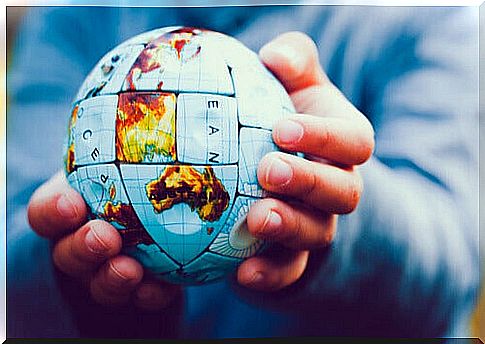How To Be A Conscientious Consumer?

Today, we are surrounded by excess and unfiltered products, services and information. Many companies are interested in showing “that product we can’t live without”, smart employees who put all their efforts into trying to create or reinforce a desire in us. So, in this very special context, we will talk about the importance of the conscientious consumer.
Let’s start with the definition. According to the Ministry of the Environment, the conscientious consumer is the one who takes into account, when choosing the products he buys, the environment, human and animal health, fair labor relations, in addition to issues such as price and brand.
On the other hand, consciousness can be defined as “the human being’s capacity to recognize the surrounding reality and to relate to it”.
Conscious consumption has to do with the acquisition of products or services that are in favor of sustainability. Furthermore, they promote a choice that is in line with our responsibility in relation to the impact we generate on the environment. This implies that we must consider others, the environment and ourselves.

Conscious consumer, breaking barriers
Conscious consumption is an initiative that invites us not to be indifferent to what consumption can cause to nature and other beings. In addition, it promotes reflection on our investments, so that we can all become conscientious consumers.
For this, we need to be aware of our behaviors, thoughts and emotions; to be in touch with the deepest part of our being. That way, we will know which options we choose and why and what we do it for. In this way, we will be able to become more assertive in our consumption.
However, it is essential not only to emphasize these issues on ourselves, but also on the impact our consumption has on nature and others. We need to cultivate compassion and empathy, wonderful tools that promote healthy interaction with others.
It is also important to consider the environment and not just immediate needs. For this, we can ask ourselves: how can I contribute to reducing environmental damage? We can start step by step, the important thing is to choose alternatives that destroy less and promote well-being.
How to digest the information?
A large part of current consumption is based on information strategies with the objective of making us acquire certain services. Conscious consumption does not seek to completely eliminate the use of services or the purchase of products, but it invites us to choose what we really need and to look for what is most favorable for all of us. We must also demand the necessary information.
A conscious consumer’s task is to analyze whether they are falling into informational obesity or if they really know how to select the information they need and manage it for the benefit of their well-being. This doesn’t mean that we see digital marketing as our worst enemy, but that we should use it to our advantage.
It consists in taking into account that the conscious consumer knows the impact it generates. So, when consuming, we can ask ourselves: do I need this product? How does your production influence the environment?
With regard to information, it is also important to help others to know about positive initiatives in terms of investing and purchasing assets. There are little tasks we can all do that we don’t notice or don’t know about.
Values and beliefs of a conscientious consumer
As Albert Vinyals i Ros reveals in his doctoral thesis, talking about sustainable consumption is well regarded in a society where there is more and more data supporting the existence of climate change. However, there seems to be a difference between what is said and what is done.
Studies show us that the environment is one of the least important factors on our list of deciding factors. As a rule, they usually weigh more variables such as price or aesthetics.
Therefore, it is important that consumption occurs in a conscious way, that we focus on values that make our impact as positive as possible. Thus, we will promote the general well-being. Some values that will help us in this task:
- Respect.
- Authenticity.
- Altruism.
- Empathy.
- Ethic.
The conscientious consumer knows the value of things, so he implements in his life what he really needs. Furthermore, he advises ethically and knows the power he has to recommend and buy; acquires and uses services from responsible companies.
Motivation
When people see a benefit after an action, they feel strengthened and more likely to do it again. In fact, one factor that helps you to not be a conscious consumer is that there is a big incentive: convenience. Therefore, to become one, it is essential to step out of the comfort zone.
For this, we need an intrinsic motivation, that is, one that is in tune with the satisfaction of doing things to generate a positive impact. Thus, we will be able to achieve transformative consumption.
Consumption habits
Habits are repetitive ways of behaving. So, to become conscientious consumers, we need to exchange them for more sustainable ones. They must be in tune with our emotions and our economy; otherwise, we won’t be able to keep them.
One way to change them is to leave laziness aside, as we often get carried away by procrastination and simply watch the time go by and still fail to achieve our goals.
In addition, we can turn to books or guides that help us to be in harmony with environmental intelligence. We can cite, for example, the teachings of Daniel Goleman, who invites us to recognize the hidden impacts of what we buy or use.

Planning to be a Conscious Consumer
Good planning will help us to be conscientious consumers, to set priorities and follow them. Furthermore, our purchasing power and prices are also important factors.
We can make an investment plan. Remember that conscious consumption is not just about the environment and others, but also about ourselves. We could ask ourselves: what do I consume favors me? To what extent does this harm or benefit my physical, emotional and social health?
In short, each of us can become a conscious consumer and help others to do the same. It is a benefit for nature, for others and for us. Thus, we will add steps to personal and collective well-being. Let’s improve the quality of life together, taking into account our impact on the purchase and use of services!









